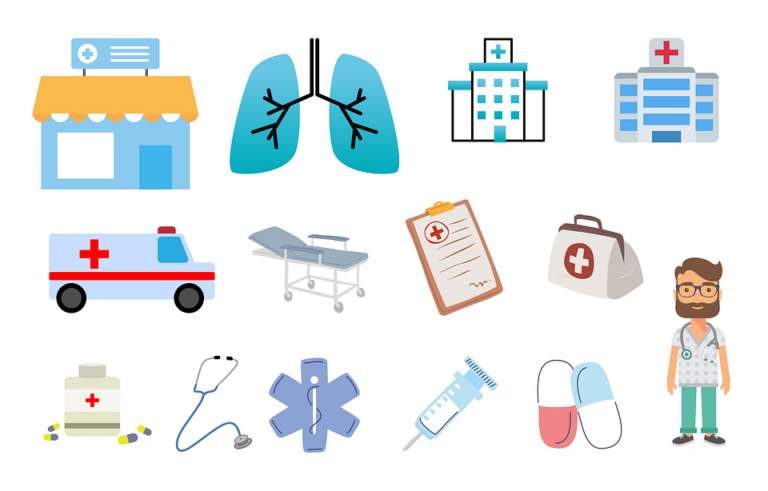Book Appointment Now

The Role of AI in Healthcare Education
Artificial Intelligence (AI in healthcare education) is transforming the way medical professionals acquire knowledge, hone their skills, and enhance patient care. The integration of artificial intelligence in medical training has paved the way for more efficient, personalized, and interactive learning experiences. As the healthcare landscape becomes increasingly complex, AI-driven tools such as machine learning in healthcare, virtual reality (VR), and adaptive learning platforms are proving invaluable in medical education. These advancements not only enhance theoretical understanding but also refine practical skills, enabling healthcare professionals to make more accurate diagnoses and provide better treatments.
Count on our nursing experts to deliver 100% custom paper on the role of Artificial Intelligence (AI) in healthcare education
Write my nursing essay
AI-Powered Simulations and Virtual Reality in Medical Training
One of the most significant contributions of AI to medical education is the development of AI-powered simulations and virtual reality in medical training. These technologies provide immersive and interactive learning experiences, allowing students and professionals to practice procedures in a risk-free environment. For instance, AI-driven VR platforms can simulate real-life surgical procedures, offering a hands-on approach to skill development without exposing patients to potential risks (Zhu et al., 2023).
AI-powered simulators also provide real-time feedback, enabling learners to refine their techniques through repetitive practice. This approach has proven particularly beneficial in surgical training, where precision and experience are crucial. A study by Patel et al. (2022) found that students trained with AI-assisted simulations demonstrated improved procedural accuracy compared to those trained using traditional methods. These findings highlight the transformative role of AI in improving both competency and confidence among medical practitioners.
Adaptive Learning in Healthcare
AI-based adaptive learning in healthcare is revolutionizing how medical professionals absorb information. Unlike conventional learning systems that follow a one-size-fits-all model, AI-driven platforms analyze a learner’s strengths and weaknesses to tailor educational content accordingly. By continuously assessing performance, these platforms adjust difficulty levels and provide personalized recommendations, ensuring more effective knowledge retention (Brown & Smith, 2021).
In medical education, adaptive learning is particularly valuable in bridging knowledge gaps and reinforcing critical concepts. For example, AI-driven programs can detect when a student struggles with complex medical conditions and automatically provide supplementary resources, such as case studies or interactive quizzes, to strengthen their understanding. Such personalized learning pathways improve engagement and knowledge retention, ultimately leading to better patient care.
AI-Driven Diagnostics and Decision Support
Beyond education and training, AI is playing a crucial role in clinical decision-making through AI-driven diagnostics. With the ability to analyze vast amounts of medical data, AI algorithms assist healthcare professionals in diagnosing diseases more accurately and efficiently. Machine learning models trained on extensive datasets can identify patterns and detect abnormalities in medical images, laboratory results, and patient histories (Huang et al., 2024).
AI-powered diagnostic tools are also integrated into medical training, allowing students to practice interpreting medical data in real-time scenarios. For instance, AI-enhanced radiology training programs help learners analyze X-rays, MRIs, and CT scans, improving their diagnostic accuracy before transitioning into clinical practice. These advancements not only enhance the competence of medical trainees but also contribute to reducing diagnostic errors, ultimately improving patient outcomes.
Enhancing Medical Research and Knowledge Discovery
Another vital aspect of technology in medical education is its contribution to research and knowledge dissemination. AI is accelerating medical research by analyzing vast datasets, identifying correlations, and predicting disease outcomes. These capabilities allow medical students and professionals to stay updated with the latest advancements and evidence-based practices (Jones et al., 2023).
AI-powered platforms also assist in literature reviews, summarizing vast amounts of medical research to provide quick and relevant insights. This feature is particularly beneficial for healthcare professionals who must continuously update their knowledge to align with emerging medical discoveries. By automating research processes, AI not only enhances learning efficiency but also fosters innovation in medical science.
Challenges and Ethical Considerations
Despite its numerous benefits, the integration of AI in healthcare education presents several challenges. Ethical concerns related to data privacy, algorithmic bias, and the potential over-reliance on AI in clinical decision-making must be carefully addressed. Ensuring that AI-driven educational tools remain transparent, unbiased, and secure is critical to maintaining trust and integrity in medical training (Miller & Roberts, 2022).
Additionally, while AI can enhance learning experiences, it should not replace human interaction in medical education. Empathy, critical thinking, and ethical decision-making are core components of medical practice that require direct human involvement. Therefore, AI should be viewed as a complementary tool rather than a substitute for traditional training methods.
The integration of AI in healthcare education is revolutionizing medical training by enhancing learning efficiency, improving diagnostic accuracy, and facilitating research. Artificial intelligence in medical training offers personalized learning experiences through adaptive learning in healthcare, while AI-powered simulations and virtual reality in medical training provide hands-on skill development opportunities. Furthermore, AI-driven decision support tools contribute to better clinical outcomes by refining diagnostic accuracy.
However, while AI presents numerous advantages, ethical considerations and the need for human oversight must not be overlooked. By striking a balance between AI-driven innovation and traditional teaching methods, the healthcare industry can harness the full potential of AI to improve medical education and ultimately enhance patient care.
Also read: AI and the Health Care Workforce
References
-
Brown, L., & Smith, J. (2021). Adaptive Learning Technologies in Medical Education. Journal of Medical Learning, 15(3), 112-125.
-
Huang, R., Chen, M., & Lee, S. (2024). AI in Diagnostic Medicine: Transforming Healthcare with Machine Learning. Medical AI Review, 22(1), 45-67.
-
Jones, T., Wilson, K., & Patel, R. (2023). AI and Knowledge Discovery in Healthcare. International Journal of Medical Research, 18(2), 78-94.
-
Miller, A., & Roberts, P. (2022). Ethical Challenges in AI-Based Medical Training. Healthcare Ethics Journal, 10(4), 200-214.
-
Patel, S., Gupta, N., & Khan, L. (2022). AI-Assisted Surgical Simulations: A New Era in Medical Training. Surgical Innovations, 29(1), 55-72.
-
Zhu, X., Wang, H., & Davis, L. (2023). Virtual Reality and AI in Medical Education. Technology in Medicine, 27(3), 120-138







